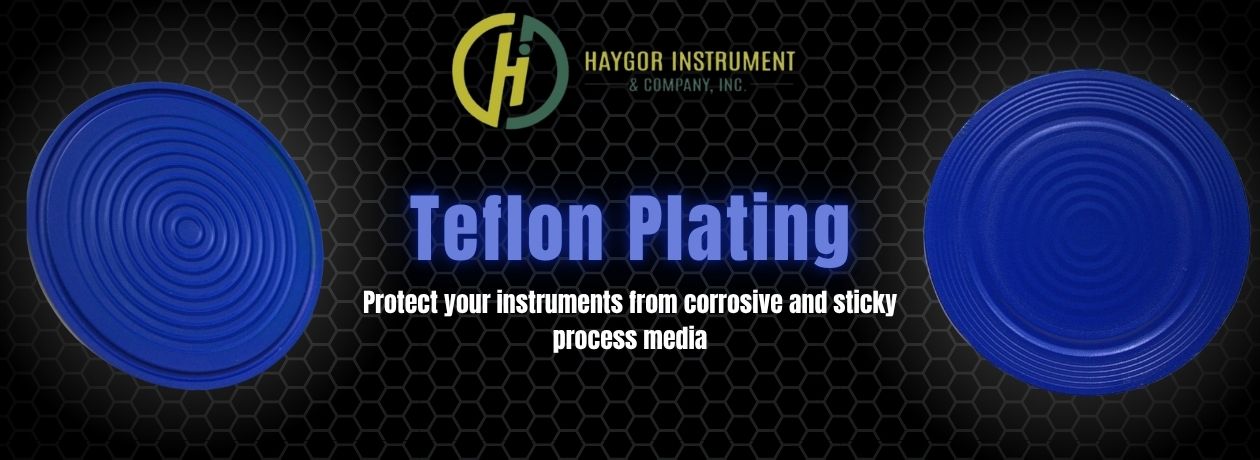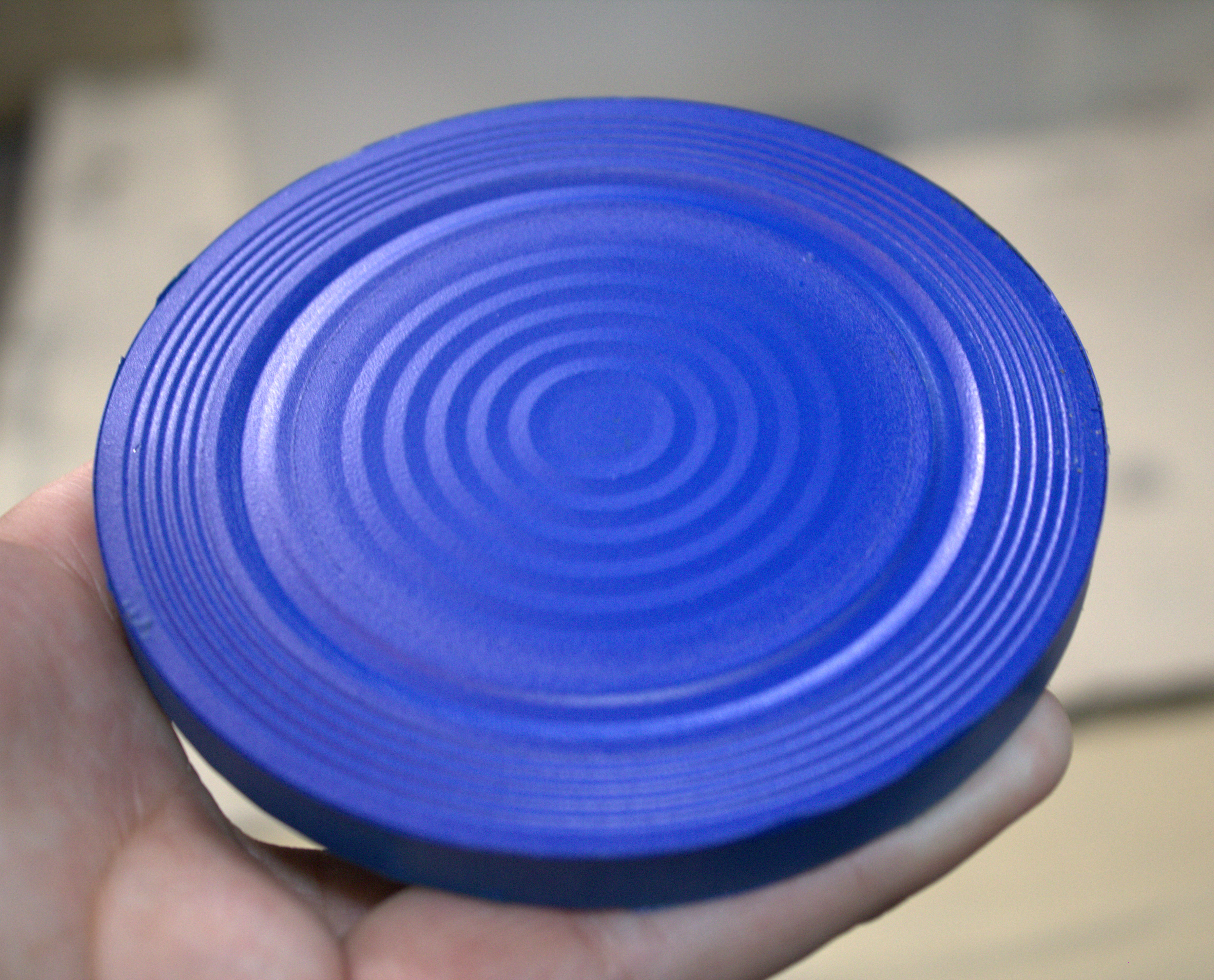
Protecting Instruments from Corrosive and Sticky Process Media: The Power of Teflon-Coated Diaphragm Seals
In process industries, instruments are the heartbeat of plant operations. Pressure transmitters, gauges, and switches provide the data needed to keep systems running safely and efficiently. But when these instruments are exposed to corrosive or sticky process media, their reliability can quickly deteriorate, leading to false readings, premature failures, and costly downtime
Industrial fluids vary widely, from thin, clean gases to dense, corrosive slurries. However, many of these process media can be harsh on instrumentation.
Many process materials are chemically aggressive or physically adhesive, which makes them especially tough on pressure measurement systems.
Corrosive Media
Acids, caustics, and solvents can attack the metal surface of a diaphragm seal over time. Even high-grade stainless steels and exotic alloys are vulnerable to pitting, cracking, or etching when exposed to concentrated chemicals such as:
- Hydrochloric acid (HCl)
- Sulfuric acid (H₂SO₄)
- Nitric acid (HNO₃)
- Sodium hydroxide (NaOH)
- Ammonia and chlorides
When corrosion occurs, the diaphragm’s flexibility is compromised, causing measurement drift, slow response, and eventual failure.
Sticky or Viscous Media
On the other end of the spectrum, process materials like asphalt, resin, syrup, molasses, glue, or heavy crude present a different challenge.
These fluids cling to the diaphragm, creating buildup that:
- Restrict movement of the diaphragm
- Introduces a “dead zone” in pressure transfer
- Slows down response time
- Causes clogging or solidification after shutdown
Even when a sticky medium is “just” residue, it can trap gases or moisture against the diaphragm, leading to corrosion and loss of accuracy over time.
The Consequences of Inadequate Protection
Without proper diaphragm protection, even the best transmitter or gauge can’t deliver consistent data.
The effects ripple through the plant:
- Unreliable readings → process instability or safety risks
- Frequent calibration or replacement → increased downtime
- Maintenance costs → labor and material waste
- Reduced productivity → slower turnarounds or off-spec product
In short, the wrong seal for the wrong media can turn into a costly operational problem.
The Solution: Haygor’s Teflon-Coated Diaphragm Seals
To combat these challenges, Haygor Instrument offers Teflon (PTFE) coating technology for diaphragm seals. This coating provides a proven method to protect instruments from both corrosion and adhesion.

What Is a Teflon-Coated Diaphragm Seal?
A diaphragm seal isolates the process fluid from the instrument’s sensing element, transferring pressure through a fill fluid instead.
By applying a thin, durable layer of Teflon to the diaphragm surface, we add a chemically inert and non-stick barrier; enhancing both protection and performance.
In addition to coated designs, Haygor also supplies complete PTFE diaphragm seals for applications that demand full polymer construction.
These all-PTFE seals deliver the same non-reactive, corrosion-resistant benefits throughout the entire wetted surface deal for processes involving highly aggressive chemicals or where metal exposure must be eliminated.
How the Teflon Coating Works
1. Chemical Resistance
Teflon is one of the most chemically resistant materials available.
It’s impervious to nearly all acids, caustics, and solvents, making it ideal for process lines where chemical attack is a persistent risk.
Even in continuous acid service, the coating prevents metal degradation, keeping seals intact and responsive for longer service life.
2. Non-Stick Surface
Teflon’s extremely low surface energy means sticky media can’t easily adhere to it.
This minimizes buildup from thick materials like syrups, adhesives, or tar, allowing the diaphragm to move freely and ensuring fast, accurate pressure transmission.
3. Extended Lifespan
By preventing corrosion and surface fouling, the coating significantly reduces wear and tear, protecting both the seal and the instrument from damage.
4. Easy Maintenance
Because materials slide off rather than stick, cleanup is faster and safer. This is significant for operators who handle aggressive or hot process fluids.
Ideal Applications
Teflon-coated diaphragm seals are a smart choice for a wide range of industries and process conditions:
- Chemical & Petrochemical: Acidic, caustic, or solvent-based processes
- Food & Beverage: Syrups, starches, and flavor concentrates
- Pharmaceutical & Cosmetic: Creams, gels, and viscous mixtures
- Pulp & Paper: Coatings, slurries, and starch solutions
- Waste Treatment: Sludge and aggressive cleaning chemicals
Wherever corrosion, sticking, or buildup are present, Teflon coating adds a critical defense.
Proven in the Field
In one recent application, a Gulf Coast chemical processor replaced conventional stainless-steel diaphragm seals with Haygor’s Teflon-coated design to handle hydrochloric acid service.
After six months of continuous operation, inspections revealed no pitting, no corrosion, and stable calibration, extending maintenance intervals by more than 50%.
Built to Protect. Designed to Perform.
At Haygor Instrument, we don’t just supply instrumentation — we engineer protection.
Our new Teflon-coated diaphragm seals offer a durable, non-reactive barrier that shields instruments from the harshest process conditions, ensuring reliable performance, reduced maintenance, and longer equipment life.
If your process involves aggressive acids or sticky fluids, this innovation could be the upgrade that keeps your systems running smoothly.
Protect your instruments. Protect your process.
Contact our team today to learn how a Teflon-coated diaphragm seal can be tailored to your specific application.
📞713-641-1791
✉️ info@haygor.com
